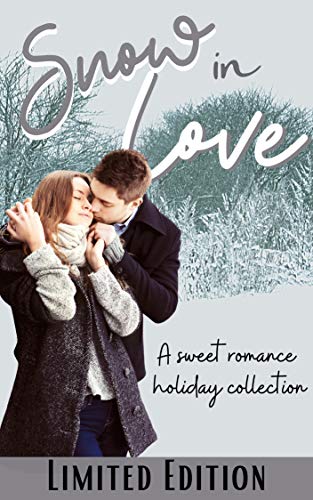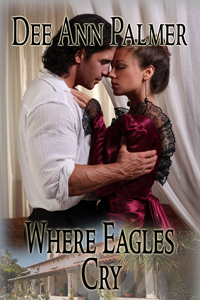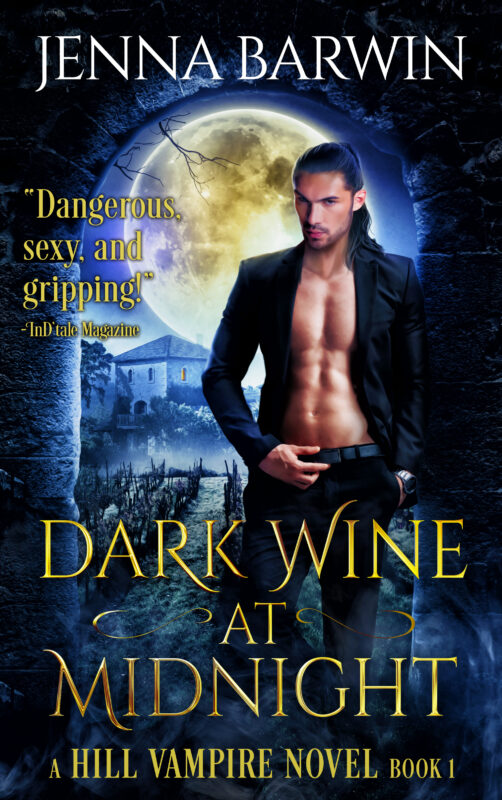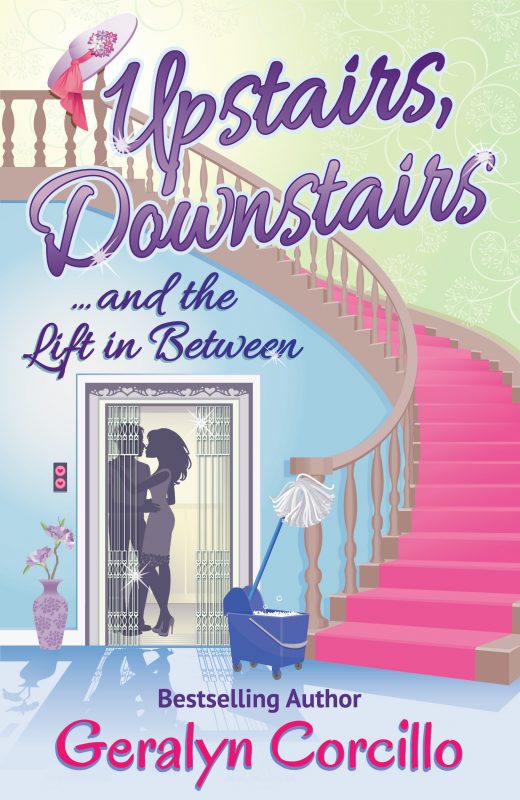The Extra Squeeze Team: February Featured Author
February 7, 2021 by The Extra Squeeze in category Featured Author of the Month, The Extra Squeeze by The Extra Squeeze Team tagged as February Featured Authors, HO Charles, Jenny Jensen, Newbie Publishing Questions, Pen Names, Rebecca Forster, Robin Blakely, The Extra Squeeze Team
Each week in February we’ll be featuring The Extra Squeeze Team.
Ever wonder what industry professionals think about the issues that can really impact our careers? Each month The Extra Squeeze features a fresh topic related to books and publishing.
Amazon mover and shaker Rebecca Forster and her handpicked team of book professionals offer frank responses from the POV of each of their specialties — Writing, Editing, PR/Biz Development, and Cover Design.
Have you a question for The Extra Squeeze Team? Send them to us by using this handy link.

Dear Extra Squeeze Team: Do I HAVE to Keep Writing in the Same Genre?

Rebecca Forster
USA Today Bestselling author of 35 books, including the Witness series and the new Finn O’Brien series.
Switching genres is not a black and white issue but a function of the writer’s objective.
Writers by nature are a curious, opinionated and creative bunch. That means there is a tendency to write about whatever inspired them. Sadly this impulsive creativity wars with, and can undermine, the business of being creative.
So, if you are a writer whose primary concern is to explore all levels of your craft, writing in many different genres will be fulfilling. But if your primary concern were to use your writing to build a creative business, it would be wise to stick to one genre. Here is why:
1) Concentrating on one genre creates a dedicated fan base.
2) One genre allows the author to create a cohesive personal brand
3) Readers will know where to find you on the bookshelf whether it is in a brick and mortar or a digital bookstore.
4) Writers usually excel in one genre. To write in a completely different genre that is not as strong as your primary one only serves to dilute your brand.
This is not to say you can’t have diversity in your writing career. If you’re a thriller writer, it can take months to craft a 100,000-word novel. Writing shorter genre romantic suspense might satisfy your desire to write in a separate genre, allow you to bring out more books each year, and your output will still appeal to your fan base while growing a cross-over fan base in romantic suspense. Do you write fantasy? Then try magical realism. Do you write romance? Cross over to women’s fiction or sagas. Just remember to make your secondary market tangential to your primary.
New writers may want to try on different genres for size to find out where their strengths lie. Established authors who want to try a completely different genre may want to consider a pseudonym. Either way, the first thing to do is decide what your career objective is and then make a genre plan to meet it.
[tweetshare tweet=”Dear Extra Squeeze Team: Do I HAVE to keep writing in the same genre?” username=”@A_SliceofOrange”]

Jenny Jensen
Developmental editor who has worked for twenty plus years with new and established authors of both fiction and non-fiction, traditional and indie.
No, of course not. You can write in any genre you desire. The outcome of that would depend on how much weight you place on each side of art vs business of writing equation.
If you weigh in about equal between writing as your expressive art and the business of making that art pay (either recognition or income) you’re well aware of the importance of branding your work for a particular audience. You know the effort involved in creating an online author presence, beginning with a body of solid work, which is publicized and supported by blogs, reviews, interviews, twitter, newsletters, Face Book etc. It takes time and consistent work to build an author platform and a fan base. Your fans find you and stick with you because they want to read the genre you’re writing in, they expect to read that genre and because you are good enough at that genre to either be building, or have built, a solid following.
Traditional publishers shy away from letting an author branch out into a different genre. They don’t want to upset an established cash cow. In that respect the traditional marketing model is similar to the Indie model. Poor A. A. Milne — he really wanted to write murder mysteries (he published one: The Red House Mystery) but his publisher would never let him taint the image of Christopher and friends. There are major exceptions; J. K. Rowling and Anne Rice are two. Both of these fabulous authors had a huge, loyal fan base before they made the genre jump. When you write that well most of us will follow blindly! I know I do and I’ve not been disappointed.
If you know you have great stories in you that cross genre typing you can always publish one genre under a nom de plume. That’s very common. Eventually a well-known writer gets outed as the person behind the false moniker but by that time she’s hooked a whole new audience so everyone is happy.
Writing in different genres is, I think, an excellent way to exercise and grow your writing skills. Just the difference in voice between the lady of an Edwardian romance and the female warrior of a dungeons and dragons fantasy would require a major stretch of skills. Add plot mechanics, atmosphere and secondary characters and you’re running a writing marathon. That’s the kind of practice that really sharpens a writer’s eye. I’d never discourage that.
The important thing to remember if you want to successfully write in more than one genre is to be sure you can excel in one of them first.
Robin Blakely
PR/Business Development coach for writers and artists; CEO, Creative Center of America; member, Forbes Coaches Council.
No, you don’t have to keep writing in the same genre. But, why would you leave?
Over the years, authors have privately shared many reasons for making big shifts in their writing careers.
- Sometimes you start out in the wrong place, and your efforts just aren’t working.
- Sometimes you change so much as you grow professionally that your story interests carry you to a new genre.
- Sometimes the original genre changes and you no longer feel at home creating the types of stories you once enjoyed.
As a writer, you are a talent-driven brand, and talent-driven brands are fueled by passion. So, it always makes sense to follow your passion. However, passion can sometimes be mistaken for a whim. So, think hard about the shift you are contemplating. Prepare for what could be ahead.
From a PR, Marketing, and Sales perspective think about desired outcomes before you decide to leave your readers and move.
- Consider the risks and the benefits to the business side of your creativity.
- Take a critical look at what you are building—there is more than your written work at stake.
- In addition to the books you are creating, you are also steadily building a community of readers. Jumping ship to another genre will be like moving from your beloved neighborhood to a new community. The readers you got to know over here may not go with you over there when you leave. They may like you enough to come visit, but it is likely that they won’t come by often.
PR-wise, you are starting over when you begin to write in a new genre. Even if you keep writing for your original genre, you will still be starting over reader-wise with your new work. Still, just like in the real world with an apartment or a starter home, a simple move can be just what you needed to live happily ever after.
H.O. Charles
Cover designer and author of the fantasy series, The Fireblade Array
When you find out, please let me know because I am about to publish a(n) historical fiction novel (after years of writing in fantasy!).
There’s no reason why an author wouldn’t have the *ability* to write in another genre, as long as the enthusiasm and skill for it is there. The main thing that I’d be concerned about is audience. The audience you build up whilst writing for one genre may not enjoy your new genre, and it may be that only die-hard fans will want to make the crossing, so to speak. And if they did, the resulting reviews and sales could go either way. Essentially you’d be back at square 1, or perhaps square 1.43, in building a readership for your books.
I wonder if JK Rowling’s endeavour with crime fiction (Robert Galbraith) might serve as a useful source of information. The books were released under a different pseudonym (just as Nora Roberts’ publisher insisted), although this was at JK’s behest since she wanted to “go back to the beginning of a writing career in this new genre, to work without hype or expectation and to receive totally unvarnished feedback.”
On one hand, she received positive reviews as a ‘debut author’, but only sold 1,500 copies in the three months before her true identity was revealed (I say only – that’s not bad going for many authors out there!).
When it was revealed that Galbraith was Rowling, sales shot through the roof, but still only half as many people have written reviews for those books as have done so for the Potter series. From that, I would suggest that if your performance in your first genre is good, then it can only help build a readership for your new genre, but don’t expect sales to match those of your first genre. However, if your foray into your new genre is flawed for any reason, I suppose *potentially* it could negatively affect your existing reputation.
Without having published my non-fantasy book yet, I say go for it. It’s a great way to learn and explore new techniques, approaches, worlds and really grow as an author. I’m really enjoying doing something different.

Ever wonder what industry professionals think about the issues that can really impact our careers? Each month The Extra Squeeze features a fresh topic related to books and publishing.
Amazon mover and shaker Rebecca Forster and her handpicked team of book professionals offer frank responses from the POV of each of their specialties — Writing, Editing, PR/Biz Development, and Cover Design.
Affiliate Links
A Slice of Orange is an affiliate with some of the booksellers listed on this website, including Barnes & Nobel, Books A Million, iBooks, Kobo, and Smashwords. This means A Slice of Orange may earn a small advertising fee from sales made through the links used on this website. There are reminders of these affiliate links on the pages for individual books.
Search A Slice of Orange
Find a Column
Archives
Featured Books
SNOW IN LOVE: Sweet Romance Holiday Collection
Escape into holiday magic with SNOW IN LOVE's sweet romance holiday stories!
More info →A VERY MERRY SUPERHERO WEDDING
Wedding Dreams . . . and Christmas Fiends
More info →WHERE EAGLES CRY
Jilted by love in 1834, Cara Lindsay sails from Boston to Mexico’s rugged California to begin a new life with a favorite aunt.
More info →DARK WINE AT MIDNIGHT
To save humanity, a reluctant spy must convince a handsome vampire to trust her, despite the dark secrets each carries, and the mutual attraction they can’t resist.
More info →UPSTAIRS, DOWNSTAIRS … AND THE LIFT IN BETWEEN
She crosses and ocean to take the holiday of her dreams at an English country estate ... where he works below stairs.
More info →Newsletter
Contributing Authors
Search A Slice of Orange
Find a Column
Archives
Authors in the Bookstore
- A. E. Decker
- A. J. Scudiere
- A.J. Sidransky
- Abby Collette
- Alanna Lucus
- Albert Marrin
- Alice Duncan
- Alina K. Field
- Alison Green Myers
- Andi Lawrencovna
- Andrew C Raiford
- Angela Pryce
- Aviva Vaughn
- Barbara Ankrum
- Bethlehem Writers Group, LLC
- Carol L. Wright
- Celeste Barclay
- Christina Alexandra
- Christopher D. Ochs
- Claire Davon
- Claire Naden
- Courtnee Turner Hoyle
- Courtney Annicchiarico
- D. Lieber
- Daniel V. Meier Jr.
- Debra Dixon
- Debra H. Goldstein
- Debra Holland
- Dee Ann Palmer
- Denise M. Colby
- Diane Benefiel
- Diane Sismour
- Dianna Sinovic
- DT Krippene
- E.B. Dawson
- Emilie Dallaire
- Emily Brightwell
- Emily PW Murphy
- Fae Rowen
- Faith L. Justice
- Frances Amati
- Geralyn Corcillo
- Glynnis Campbell
- Greg Jolley
- H. O. Charles
- Jaclyn Roché
- Jacqueline Diamond
- Janet Lynn and Will Zeilinger
- Jaya Mehta
- Jeff Baird
- Jenna Barwin
- Jenne Kern
- Jennifer D. Bokal
- Jennifer Lyon
- Jerome W. McFadden
- Jill Piscitello
- Jina Bacarr
- Jo A. Hiestand
- Jodi Bogert
- Jolina Petersheim
- Jonathan Maberry
- Joy Allyson
- Judy Duarte
- Justin Murphy
- Justine Davis
- Kat Martin
- Kidd Wadsworth
- Kitty Bucholtz
- Kristy Tate
- Larry Deibert
- Larry Hamilton
- Laura Drake
- Laurie Stevens
- Leslie Knowles
- Li-Ying Lundquist
- Linda Carroll-Bradd
- Linda Lappin
- Linda McLaughlin
- Linda O. Johnston
- Lisa Preston
- Lolo Paige
- Loran Holt
- Lynette M. Burrows
- Lyssa Kay Adams
- Madeline Ash
- Margarita Engle
- Marguerite Quantaine
- Marianne H. Donley
- Mary Castillo
- Maureen Klovers
- Megan Haskell
- Melanie Waterbury
- Melisa Rivero
- Melissa Chambers
- Melodie Winawer
- Meriam Wilhelm
- Mikel J. Wilson
- Mindy Neff
- Monica McCabe
- Nancy Brashear
- Neetu Malik
- Nikki Prince
- Once Upon Anthologies
- Paula Gail Benson
- Penny Reid
- Peter Barbour
- Priscilla Oliveras
- R. H. Kohno
- Rachel Hailey
- Ralph Hieb
- Ramcy Diek
- Ransom Stephens
- Rebecca Forster
- Renae Wrich
- Roxy Matthews
- Ryder Hunte Clancy
- Sally Paradysz
- Sheila Colón-Bagley
- Simone de Muñoz
- Sophie Barnes
- Susan Kaye Quinn
- Susan Lynn Meyer
- Susan Squires
- T. D. Fox
- Tara C. Allred
- Tara Lain
- Tari Lynn Jewett
- Terri Osburn
- Tracy Reed
- Vera Jane Cook
- Vicki Crum
- Writing Something Romantic
Affiliate Links
A Slice of Orange is an affiliate with some of the booksellers listed on this website, including Barnes & Nobel, Books A Million, iBooks, Kobo, and Smashwords. This means A Slice of Orange may earn a small advertising fee from sales made through the links used on this website. There are reminders of these affiliate links on the pages for individual books.








































